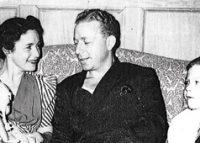Richard Ravitch, who led New York City development firm HRH Construction and played a role in a number of key political moments in city and state history, died on June 25. He was 89.
Ravitch died of an undisclosed cause in the hospital, his wife confirmed to the New York Times. Figures in the development and political world responded with an outpouring of condolences, including New York Governor Kathy Hochul calling the late construction boss a “titan of New York’s civic world.”
Ravitch left a mark across multiple industries despite never winning elected office.
Born in July 1933, Ravitch grew up to inherit HRH Construction with his cousins, a family company that made an indelible impact on the city. The firm built famous apartment buildings, including San Remo and the Beresford.
Ravitch joined the firm in 1960, before the company embarked on several notable projects, including the construction of Waterside Plaza and Manhattan Plaza in the 1970s.
The former was built in Kips Bay in 1974 with 1,471 apartments, using Mitchell-Lama affordable financing; Ravitch exited the program a couple of decades ago and most units there are now free market and owned by Brookfield Asset Management.
Midtown’s Manhattan Plaza is a block-long residential complex on West 42nd Street that has attracted low and moderate-income performers.
Ravitch took over the New York State Urban Development Corporation in 1975 and created the Project Finance Agency, an entity designed to raise money for development through bonds. Later in the decade, he took over as chair of the Metropolitan Transit Authority, helping to build the Metro-North Railroad and helped salvage the subway system.
After finishing third in the race for mayor in 1989, Ravitch found his way to a political office in 2009 when he briefly became lieutenant governor under David Paterson following Gov. Eliot Spitzer’s resignation.
HRH ultimately bit the dust, filing for bankruptcy in 2009 amid accusations of employing lower-cost nonunion workers through a shadow company. Ravitch said the company’s legacy was that of “a builder of affordable housing, a builder that was sensitive to the needs of the public.”
Ravitch is survived by his wife, two children from his first marriage, three children from his third and final marriage and 13 grandchildren.
— Holden Walter-Warner
Read more



